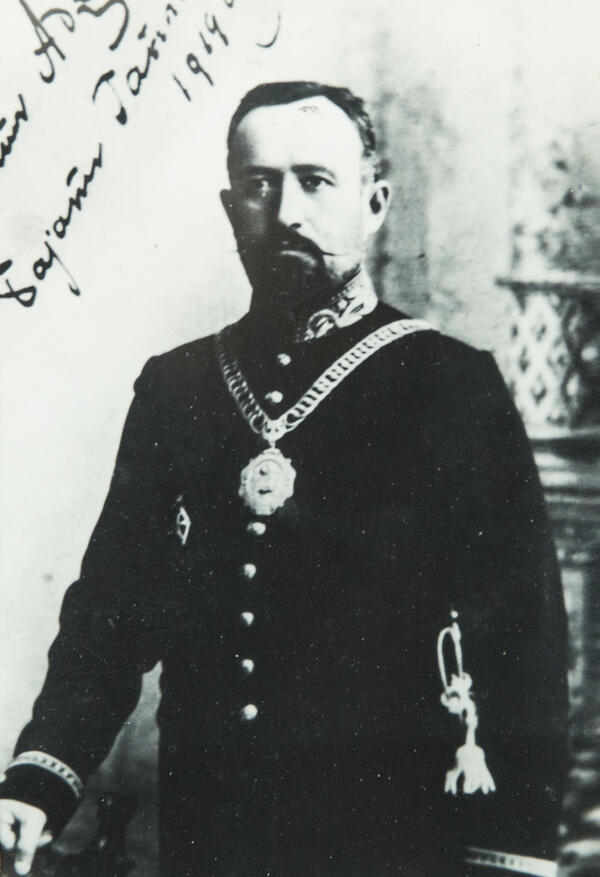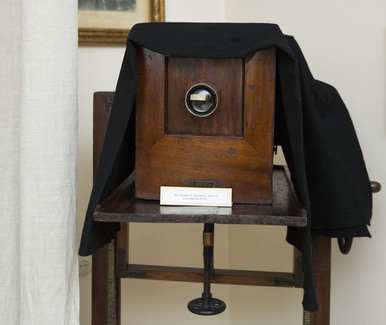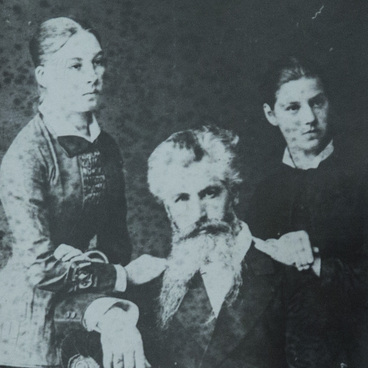Georgiy (Gappo) Baev was a famous North Caucasian public figure in the 19th century. He was born to peasant family in 1870 in the village of Olginsky. His uncle, General Mikhail Baev, helped him get an education. In 1894, Georgiy graduated from the Novorossiysk University law faculty and from then on, lived and worked in Vladikavkaz, where he served as mayor from 1911 to 1917. Baev was also engaged in educational activities. He became one of the first publishers of Ossetian fiction, published many monuments of folklore, and founded the Vladikavkaz Ossetian publishing society ‘Ir’.
His contemporaries recalled that Baev was a man of great poetic interest and acumen, always able to present himself in a most favorable light, and was very popular among society. Georgiy Vasilyevich always acted boldly, decisively and aggressively - but only within the law. He shared liberal-democratic, not monarchical views, despite the fact that as an official, he served the autocratic-bureaucratic system.
During the formation of the Soviet power on the Terek River, Baev moved to Tiflis, where he collaborated with Akhmet Tsalikov’s anti-Soviet newspapers “Free Highlander” and “Nog Tsard”. He wrote: “Not so long ago, Ossetia split into two camps — the revolutionary camp, with weapons in its hands meeting the voluntary army in their movement along the Terek River, and the counter-revolutionary camp, longing for “hard power” of the Denikin’s generals, — is now by the objective course of events increasingly coalescing into a unified Ossetia, aflamed by a deep and strong sense of outrage and anger against the predatory despotism of the Voluntary army.’
Baev considered it necessary to preserve the territories where Ossetians lived, as well as to expand them to fight famine. He defended the importance of developing book publishing, crafts and industry, and believed in the need for peaceful relations with the neighboring peoples. Georgiy Vasilyevich proposed to establish self-government in Ossetia, based on the model of bourgeois democracy in Western countries. However, his ideas did not take root at home, and Baev emigrated to Germany in 1921.
His contemporaries recalled that Baev was a man of great poetic interest and acumen, always able to present himself in a most favorable light, and was very popular among society. Georgiy Vasilyevich always acted boldly, decisively and aggressively - but only within the law. He shared liberal-democratic, not monarchical views, despite the fact that as an official, he served the autocratic-bureaucratic system.
During the formation of the Soviet power on the Terek River, Baev moved to Tiflis, where he collaborated with Akhmet Tsalikov’s anti-Soviet newspapers “Free Highlander” and “Nog Tsard”. He wrote: “Not so long ago, Ossetia split into two camps — the revolutionary camp, with weapons in its hands meeting the voluntary army in their movement along the Terek River, and the counter-revolutionary camp, longing for “hard power” of the Denikin’s generals, — is now by the objective course of events increasingly coalescing into a unified Ossetia, aflamed by a deep and strong sense of outrage and anger against the predatory despotism of the Voluntary army.’
Baev considered it necessary to preserve the territories where Ossetians lived, as well as to expand them to fight famine. He defended the importance of developing book publishing, crafts and industry, and believed in the need for peaceful relations with the neighboring peoples. Georgiy Vasilyevich proposed to establish self-government in Ossetia, based on the model of bourgeois democracy in Western countries. However, his ideas did not take root at home, and Baev emigrated to Germany in 1921.



